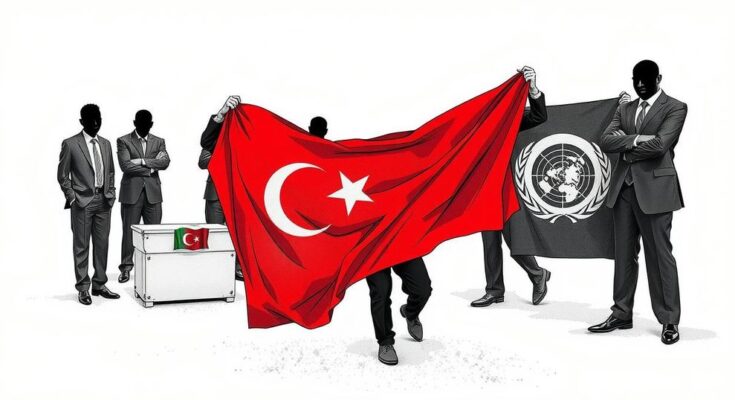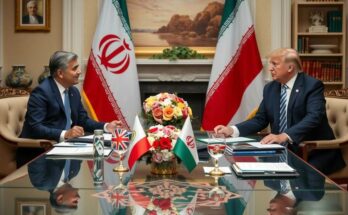The UN has announced a plan aimed at stabilizing Libya by facilitating elections, unifying competing governments, and reforming institutions, as articulated by UN envoy Stephanie Koury. The country has struggled with division since the 2011 uprising against Moamer Kadhafi, with critical national elections repeatedly postponed. The UN initiative seeks to pave the way for legitimate governance and a shared national vision for Libya’s future.
The United Nations has unveiled a strategic initiative aimed at stabilizing Libya by facilitating elections, unification of rival governments, and institutional reform. This announcement was made by UN envoy to Libya, Stephanie Koury, during a briefing to the Security Council. Following years of turmoil after the fall of former leader Moamer Kadhafi in 2011, Libya is still split between two main administrations: a UN-recognized government in Tripoli and an eastern government supported by Khalifa Haftar, a military figure.
Koury emphasized the necessity of an inclusive political initiative to help Libya navigate its persistent political gridlock and restore the legitimacy of institutions that have fallen out of favor. As part of this initiative, the United Nations Support Mission in Libya (UNSMIL) will form an advisory committee tasked with addressing electoral disputes and setting the stage for future general elections. However, no specific timeline for these elections has been outlined.
The situation in Libya has been complicated by a ceasefire agreement following the civil conflict, which led to a UN-mediated pact intended to create interim governing bodies and call for elections in December 2021. Unfortunately, these elections were delayed indefinitely due to disagreements regarding the legal framework. Since then, limited local elections have taken place, yet a comprehensive national election remains absent.
Koury noted that Libya faces significant economic challenges and external pressures, indicating that various factors contribute to the ongoing instability. Despite these hurdles, she expressed optimism, stating, “Libya has the potential to become a beacon of stability and prosperity for the Mediterranean region and beyond.” Furthermore, the UN intends to supervise a dialogue aimed at crafting a shared national vision for the future of Libya.
Following the overthrow of Moamer Kadhafi in 2011, Libya has been engulfed in conflict, leading to the emergence of multiple competing governments. The protracted instability has hampered development and created a dire political environment. The UN has been actively involved in attempting to mediate a resolution and re-establish a cohesive governance structure. The recent announcement reflects ongoing efforts by the international community to support Libya in overcoming divisions and re-establishing democratic processes after years of postponement and breakdown of order.
In summary, the UN’s proposed plan for Libya is a crucial step toward overcoming the political impasse that has characterized the country since the fall of Kadhafi. By focusing on inclusive dialogue, electoral resolution, and institutional reform, the UN aims to provide a pathway for legitimate governance and stability. Despite past challenges and external influences, the potential remains for Libya to emerge as a stable nation in the Mediterranean region.
Original Source: www.france24.com




